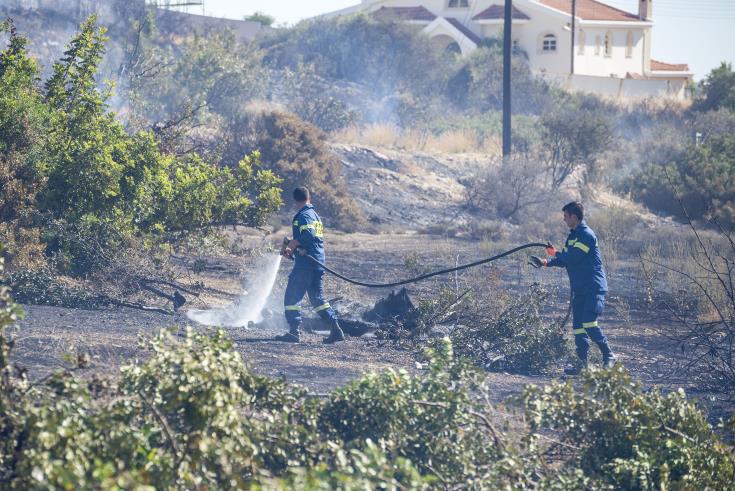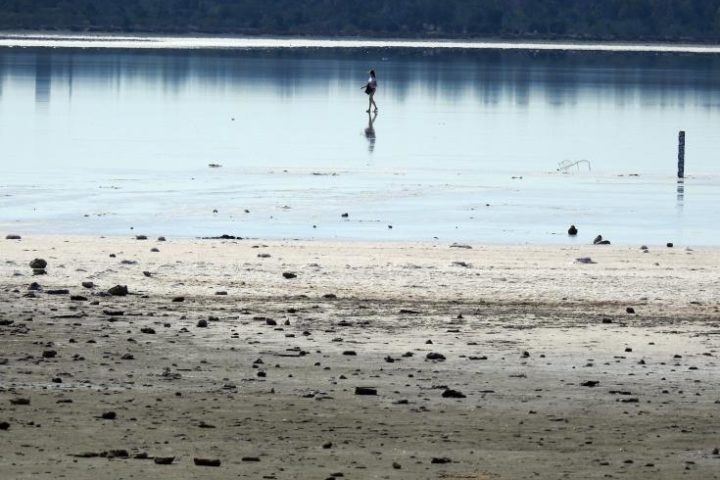Around the globe, the weather is changing; it’s becoming more extreme and unstable from flash floods in Germany, wildfires in Cyprus and snow in Brasil.
We are witnesses to a climate phenomenon; we can no longer rely on the weather to be seasonal or the earth to behave in a predictable manner.
Every year the summer gets hotter than ever before, breaking new records with heatwaves lasting longer.
Cyprus recorded its hottest temperature ever last September, supposedly after the summer heat had peaked.
There are more yellow warnings for extreme heat than in previous years put together.
It feels like the earth is trying to tell us something.
Human behaviour is becoming a real pain in the backside for planet earth.
Since Homosapien walked the earth, the environment has tried to educate us, to tell us that we must treat nature with respect.
Only kill what we can eat, use raw materials to survive but not exploit the planet beyond its ability to replenish itself.
For hundreds of years, we disregarded the signs in the name of progress.
There were countries to build and empires to protect by extracting natural wealth.
The industrialisation of the modern world meant polluting the atmosphere with toxins and dumping our waste underground or in the ocean.
Humankind has managed to destroy natural habitats, ensure thousands of species become extinct while animals struggle to survive in freeze-thaw conditions.
I am not an eco-warrior that has gone vegetarian and lives off the grid to save the planet, but I am worried time is running out to stop a global-warming disaster.
Cyprus is already an island without seasons.
It is either very hot, freezing or dusty, interrupted by wildfires and flash floods.
I haven’t done the maths, but the island could quite simply erode if the summers become drier, warmer and the rain stops falling.
Whatever the weather in the future, it will be extreme and unbearable if we don’t stop the current trend.
Worryingly, it may already be too late to cool down the planet.
Some countries will argue they don’t have the luxury to reduce emissions or the technology to switch to renewables and electric vehicles.
We all like to live in our comfort zone and behave as if the environment can take whatever we throw at it.
Volcanos, tsunamis, hurricanes, heatwaves, earthquakes, floods, snowdrifts, dust storms, blizzards are nature’s way of rebelling.
And when nature goes on the rampage, there is nothing we can do about it.
When you least expect it, it will come with a deafening roar and flatten everything.
Investing in technology is one option for cities to become more eco-friendly; switching to renewable energy, even becoming more conscious about recycling can help.
There is much the government can do to encourage Cypriots to respect the environment.
Better public transport would ease traffic congestion, building regulations to ensure energy-efficient homes are built, investing in green energy and smart living.
Protecting the environment should be part of the school curriculum – education is the only way out of this mess.
Plastic waste
We can all do our bit to reduce pollution and plastic waste, but it is unlikely the world will act in unison to rescue the planet.
The planet spiralling out of control because of human behaviour is a depressing thought.
Many believe that year zero is way off into the future, and the earth will sort itself out by a miracle of nature.
After the wildfires last month, you can’t plant trees quick enough to replace what was lost.
And this is not just happening in Cyprus; it is happening across the globe.
Natural disasters are destroying lives and communities.
But are we feeding the monster that has come to exact revenge?
Bad things happen.
A haphazard series of events creates a disaster, but the science suggests extreme weather events are not simply random and unpreventable.
According to climate scientists, the world has warmed over the past 30 years.
Humans are blamed as the dominant cause of global warming since the 1950s, although some may disagree and say it has always been thus.
Around 14,000 scientists have signed a new climate emergency paper warning the world could endure ‘untold suffering’ if we don’t work on managing global warming.
Greenhouse gas emissions are at an all-time high, whereas glacial ice thickness is at an all-time lowest in 71 years of recording.
Researchers recommend a three-pronged attack.
Implement a significant global carbon price to reduce carbon emissions, eventually ban fossil fuels and restore and protect crucial carbon-rich systems like forests and wetlands to help them continue their job of being carbon sinks.
We need to protect our natural heritage, or Cyprus could become a barren wasteland permanently on fire.









